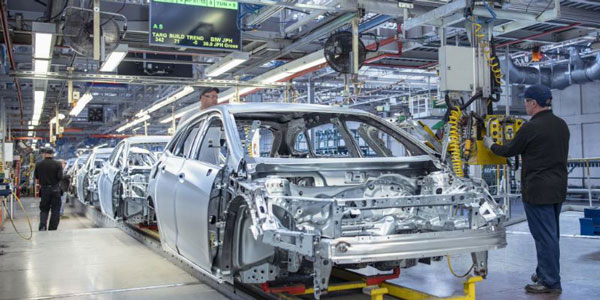This is the primary distinction between the two types of policies. The elements of the policy that outline the terms and conditions are referred to as "parts." It is of the utmost importance to have a thorough understanding of the many components of the policy and the types of protection offered.
Insurance for Commercial Vehicles (BAP)
Many business vehicle insurers offer policies using standard forms that ISO issues. The small business auto insurance for commercial vehicles issued by ISO is referred to as the Business Auto Policy (BAP). The BAP may be used in a variety of contexts. It is possible to ensure a broad variety of firms, both big and small, operating in various sectors using this method. The BAP often includes a business auto coverage form, business auto declarations, and different endorsements. Instead of utilizing ISO forms, several insurers use their own proprietary commercial car forms when they issue insurance. Some organizations use a mixture of ISO forms and customized endorsements.
Covered Autos
Cars owned, rented, leased, or loaned by a company and intended to be used on public roads are the types of vehicles covered by an auto insurance policy purchased by a business. A "symbol 1" policy offers the most comprehensive coverage possible and denotes that the policy protects any vehicle. Symbol 1 comprises automobiles owned, rented, and otherwise not owned by the user. This coverage is limited to only applying to the automobiles mentioned on the page containing the policy declarations.
Covered Drivers
A vehicle insurance policy for a company owner might include either the owner himself or one of the owner's workers as a covered driver. A person driving a covered vehicle with the authorization of the specified insured is considered a covered driver. A covered driver might also be the owner of the company. Unless selling, servicing, repairing, or parking automobiles are part of the auto insurance for business, the coverage does not apply to a person engaged in any of these activities.
Liability Coverage
Suppose your company is involved in an accident that causes physical injury or property damage to third parties. In that case, the liability coverage on your commercial vehicle insurance policy will pay for the business owner's legal responsibility to compensate those parties for their losses. Additionally, the insurance provider will provide legal defense for the insured against claims and litigation, according to the policy's limits.

Physical Damage Coverage
The policy for the business vehicle may be expanded to include coverage for physical damage. Damage to the insured's vehicles that occurs as a direct consequence of an event specified as being covered by the policy is the subject of physical damage coverage, also referred to as comprehensive and collision coverage. When a covered vehicle is struck by another vehicle or item, this is considered to be a collision. A collision is not necessary to qualify as comprehensive; the term may refer to anything else. Damage caused by fires, wind, hail, vandalism, or theft are situations in which comprehensive coverage could come in handy.
Conditions
Within the "conditions" part of a commercial auto insurance for business, the legal duties of the insured and the insurance provider are outlined. You will find information on your duties to pay the insurance premium, the process for filing a claim, and the protocols for resolving disputes in the conditions part of the policy that you have purchased.
Definitions
The "fine print" of the policy may be found in the definitions part of the business owner insurance policy. This is the area where the policyholder can locate the policy. In this part, your rights as a policyholder are laid out, and some of the more frequent terms that appear elsewhere in the policy are explained. It is critical to have a solid understanding of the definitions since the policy contains several terms that might potentially restrict or limit coverage.

If you are unsure whether the business vehicle insurance policy is the best choice for you, a representative from the insurance company may provide you with further information on which coverage options are required and which ones are optional. Your insurance agent has years of expertise working with business vehicle policies. They can assist you in developing a business insurance auto policy tailored to your specific needs and your company's circumstances. Please do some research on the insurance company you are considering for your company's auto insurance. This will help you make an informed decision about which insurance company to go with.




